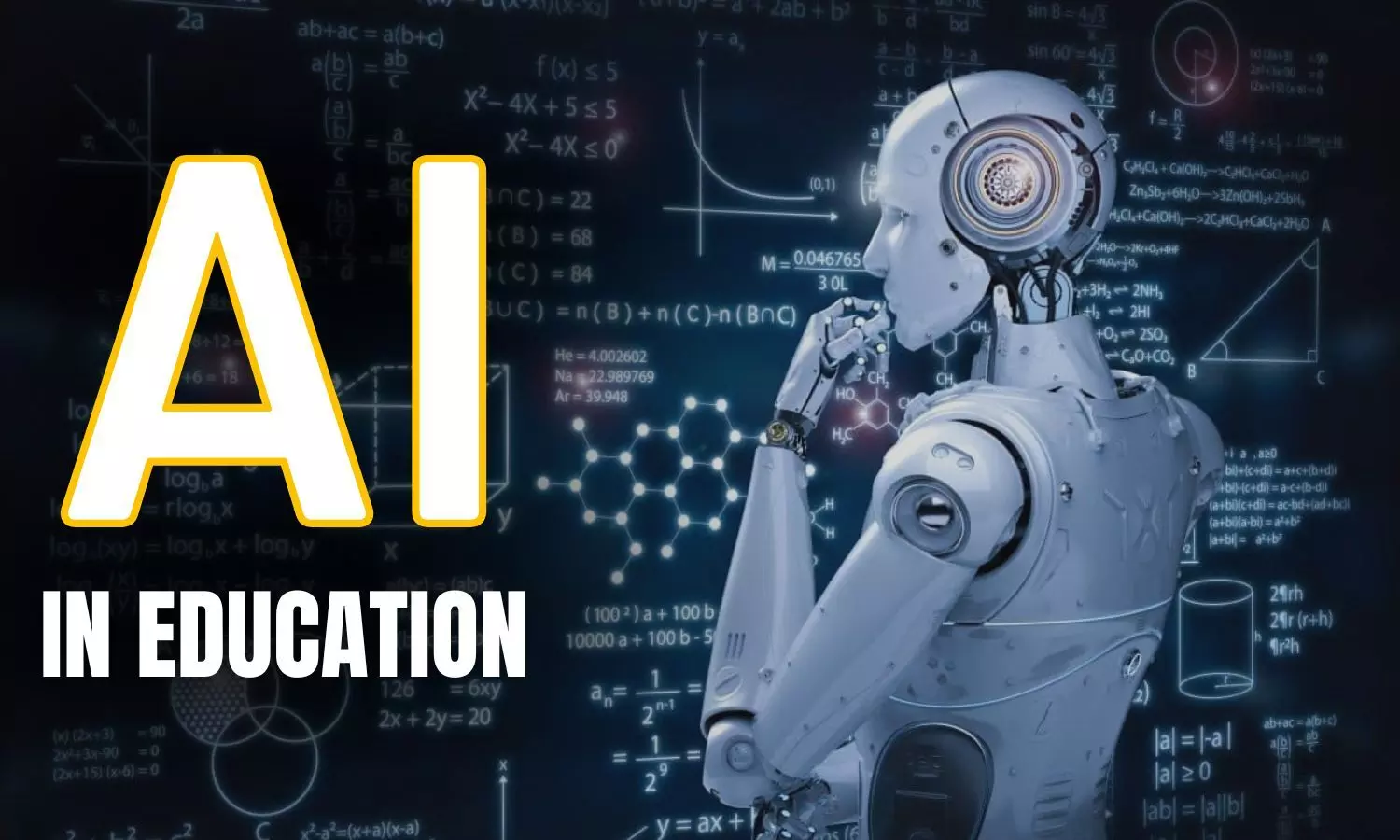AI in Education: A New Era of Learning
Explore the impact of AI on education, from personalised learning experiences to adaptive platforms.
AI in Education: A New Era of Learning

Artificial Intelligence (AI) is transforming our surroundings, including the way we learn. Education has typically followed a uniform approach, where all students learn the same material at the same speed. However, this conventional system often does not address the individual needs and learning preferences of students.
Personalised Learning Through AI
Artificial intelligence in education allows teachers to personalise the learning process for every student. It delivers customised educational resources that cater to individual skills, interests, and learning preferences.
AI analyses student performance data to identify patterns of learning difficulties or gaps in understanding.
Adaptive platforms use AI and machine learning algorithms to assess vast amounts of student performance data. This information helps evaluate their strengths and weaknesses. AI combines these details with individual needs to create customised learning paths.
For example, if a student performs well in a subject, the platform may skip over basic lessons and move to more advanced content. Conversely, if a student struggles, the platform can offer additional resources and adjust the pace to suit their learning needs.
Engagement and Motivation
One-size-fits-all learning can be frustrating for students, leading to a lack of engagement and motivation. AI caters to each student's unique learning style, helping them learn at their own pace. The machine learning algorithm analyses their understanding and offers extra practice to ensure clarity of concepts, improving their understanding and retention of material.
The key advantages of AI in education for students include improved engagement, individualised pacing, tailored learning experiences, enhanced understanding, and easy accessibility.
AI personalises learning experiences to motivate students, making them more invested in material tailored to their interests.
Adaptive platforms adjust the pace of learning, ensuring students are neither left behind nor rushed through the material.
Benefits for Educators
AI in education also benefits teachers by automating administrative tasks, allowing them to focus on teaching. Tasks like grading assignments and tracking attendance can be time-consuming, but AI helps streamline these processes. This efficiency allows educators to analyse student strengths and weaknesses without bias, providing insights into learning patterns and improving curriculum efficiency.
With AI, teachers can create personalised lesson plans based on data-driven insights. They can identify areas where students need help and adjust their teaching strategies accordingly. AI-based assessment tools offer quick feedback, helping educators understand student performance and adapt their methods to suit individual needs better.
Innovative AI Tools in Education
The progress of technology has spurred new developments in education. Artificial Intelligence is capable of analysing large volumes of data and replicating decision-making similar to that of humans.
AI-driven educational tools enhance the learning experience by providing personalised and engaging content.
Examples of impactful AI-driven tools include virtual tutors that interact with students and adapt to their learning pace, intelligent content recommendations based on individual progress, and automated assessment systems that provide real-time feedback. Gamified learning platforms use game design elements to engage students in educational activities, while chatbots offer 24/7 assistance for students’ queries.
Future Trends in AI Education
AI is transforming education through personalised experiences and easily accessible opportunities. According to IDC, the global market for AI-enabled education technology is expected to exceed $150 billion by 2027.
Generative AI is set to disrupt traditional curriculum development by analysing vast amounts of educational materials to create personalised learning experiences.
Augmented Reality (AR) and Virtual Reality (VR) technologies are also providing immersive learning experiences, making complex concepts easier to understand.
Challenges and Ethical Considerations
Despite its potential, AI in education comes with challenges and ethical considerations. Data privacy is a major concern, as AI relies on large amounts of personal information. It is essential to collect and utilise this data ethically.
Furthermore, AI algorithms can reinforce biases present in their training data, which can affect the recommendations provided for learning.
Accessibility is another important issue. AI tools must be designed with all students in mind to ensure equal opportunities for those with disabilities. Addressing these challenges is essential for the responsible use of AI in education.
Global Initiatives Promoting AI in Education
Various global initiatives highlight the importance of AI in education. UNESCO emphasises that AI can help accelerate progress towards quality education worldwide.
Countries like Singapore, South Korea, India, and the U.S. are actively adopting AI technologies to enhance educational experiences.
For example, Singapore’s "Smart Nation" strategy includes AI-enabled companions for grading and feedback. South Korea uses AI digital textbooks for personalised learning, while India’s AI-powered apps create interactive learning experiences. The U.S. focuses on adaptive assessments to improve learning outcomes.
Preparing for the Future
As AI continues to evolve, educational institutions, policymakers, and educators must integrate AI responsibly. Developing comprehensive AI strategies, establishing ethical guidelines, and investing in training for educators are crucial steps. Collaboration between different departments and sharing best practices can enhance AI integration.
Policymakers should create guidelines for ethical AI use and establish regulations to protect student privacy. Investing in AI research specifically for education and promoting public-private partnerships will support innovation and responsible implementation.
Educators must use AI tools responsibly to enhance teaching and student learning outcomes. Personalising learning experiences, fostering digital literacy, and discussing ethical considerations in the classroom are vital to preparing students for the future.
AI is changing education by tailoring learning experiences to individual needs and improving teaching methods. It helps tackle many issues in the education sector and aims to provide equal opportunities for all students.

